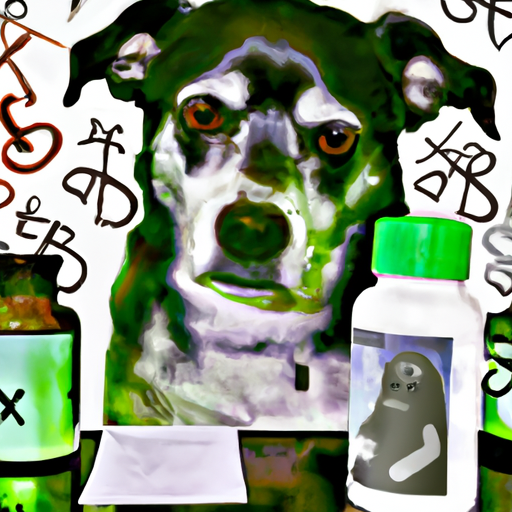1. The Hidden Dangers of Flea and Tick Medicines
You’re a dedicated caregiver to your canine companion, and you would go to any length to keep them safe and healthy. But did you know that some of the flea and tick medicines you might be using could indeed be causing harm? Certain products on the market, while effective at killing pests, have been linked to severe health problems in dogs, even resulting in death in some cases.
2. Potentially Harmful Flea and Tick Medicines
Here’s a list of some commonly used products that have been connected to adverse effects:
-
Isoxazoline class drugs: This group includes popular brands such as Bravecto, Nexgard, and Simparica. While effective at killing fleas and ticks, they’ve also been linked to incidents of seizures in dogs.
-
Organophosphate insecticides (OPs): These are often found in over-the-counter medications. They can cause a range of health issues, from minor gastrointestinal upset to severe neurological disorders.
-
Pyrethroids: These are synthetic versions of natural insecticides derived from chrysanthemum flowers. They’re commonly found in spot-on treatments and can cause tremors, seizures, and even death in dogs.
| Medicine Class | Common Brands | Possible Side Effects |
|---|---|---|
| Isoxazoline | Bravecto, Nexgard, Simparica | Seizures |
| Organophosphate insecticides | Various Over-the-Counter Brands | Gastrointestinal upset, neurological disorders |
| Pyrethroids | Various Spot-On Brands | Tremors, seizures, death |
3. Recognizing Symptoms of Adverse Effects
As a caregiver, it’s crucial that you’re able to recognize the signs of an adverse reaction to flea and tick medicine. Symptoms can range from mild to severe, including:
- Vomiting or diarrhea
- Excessive drooling
- Loss of appetite
- Depression or lethargy
- Seizures or tremors
4. Safer Alternatives to Consider
Luckily, there are safer alternatives available to protect your furry friend from fleas and ticks. Natural remedies often come with fewer side effects, and can include:
- Essential oils like lavender, lemongrass, and cedarwood
- Diatomaceous earth, a non-toxic powder that can be used in your dog’s bedding
- Regular grooming and inspections to manually remove any pests
5. Frequently Asked Questions
Q: Can all dogs have adverse reactions to these medications?
A: While any dog can potentially have an adverse reaction, certain breeds and young, old, or sick dogs may be more susceptible.
Q: What should I do if I think my dog is having a reaction?
A: Immediately discontinue use of the product and contact your vet.
Q: Are all natural remedies safe for all dogs?
A: Not necessarily. Always consult with your vet before starting a new treatment.
Q: Can I stop using flea and tick medicine altogether?
A: It’s crucial to protect your dog from fleas and ticks. If you’re concerned about the risks of certain medicines, speak to your vet about safer alternatives.
In conclusion, while certain flea and tick medicines can be harmful, you as a caregiver can make informed decisions to protect your dog’s health. Always stay informed, watch for symptoms, and consult with a trusted vet.



